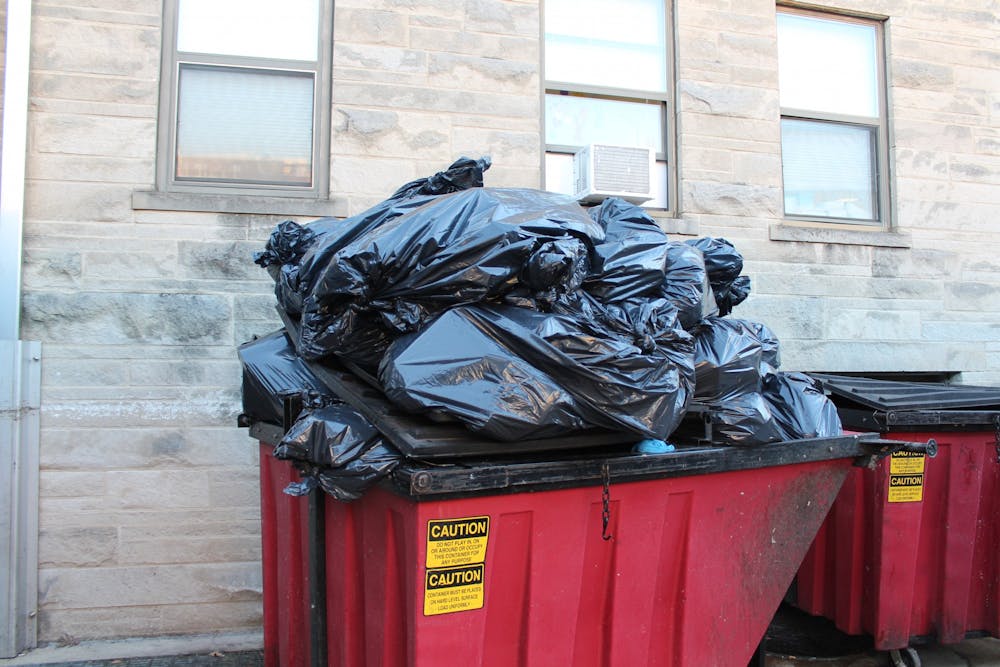Local waste management experts are recommending that citizens pay more attention to what they are recycling to prevent contamination.
Contamination is caused when loads of recyclable material are mixed with non-recyclables. When this happens, the whole load must be thrown out and sent to landfills, Ben Pearson, general manager of Republic Services for Bloomington and western Indiana, said.
Pearson said that some of the most common items that are incorrectly recycled include pizza boxes, Styrofoam, plastic bags and electronics.
Items that are in closed bags also cannot be recycled, as the sorting line at the recycling center moves too fast for workers to open and unbag them, Pearson said.
[Related: Toxic waste from train derailment in East Palestine to be transported to Indiana]
In addition, items that are wet or not clean cannot be recycled, Pearson said. Items like mayonnaise and peanut butter jars or greasy boxes often contaminate entire recycling loads. Republic Services has a website, Recycling Simplified, with more detailed information about what recycling should look like.
Bloomington resident Yash Jain said that he sees incorrect recycling commonly around Bloomington. He said that he often sees pizza boxes and food waste disposed of incorrectly.
Jain said that efforts to reduce confusion and additional recycling bins would benefit Bloomington.
“For example, some places may have recyclable coffee cups, other places may not, and sometimes they won’t have a bin, which makes it confusing,” Jain said.
[Related: Despite compost signs, IU hasn't composted since the COVID-19 pandemic]
Incorrect recycling can also cause issues for workers that sort waste in waste management facilities, Felix Martinez, vice president for the Teamsters waste division, said in an email.
Martinez said that plastic bags are a large hazard for workers, with a large risk being getting entangled and causing a breakdown of the line.
[Crimson Cupboard sees increase in shoppers as food prices ris
Additionally, he said chemical containers and batteries present risks to workers. The City of Bloomington offers multiple hazardous waste disposal centers to dispose of batteries and other hazardous materials.
One way to measure the impact of incorrect recycling is diversion rates, which is the percentage of waste that is not sent to landfills, Rhea Carter, director of sanitation for the City of Bloomington, said. From 2018 to 2022, Bloomington has had a 30% diversion rate. In comparison, the national average calculated by the Environmental Protection Agency was 32.1% in 2018.
[Related: Rises in "all-you-care-to-eat" food waste puts strains on IU Dining workers]
Carter said that if contamination caused by incorrect recycling does not decrease, vendors who purchase recycled material to manufacture new products will not take Bloomington’s waste.
“For your future, these kids need to understand how important recycling is and how important doing it right is,” Carter said.




